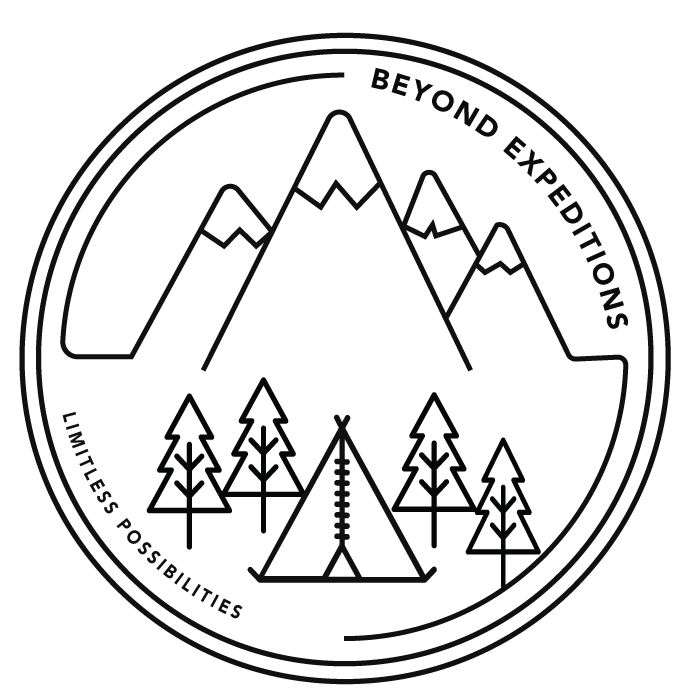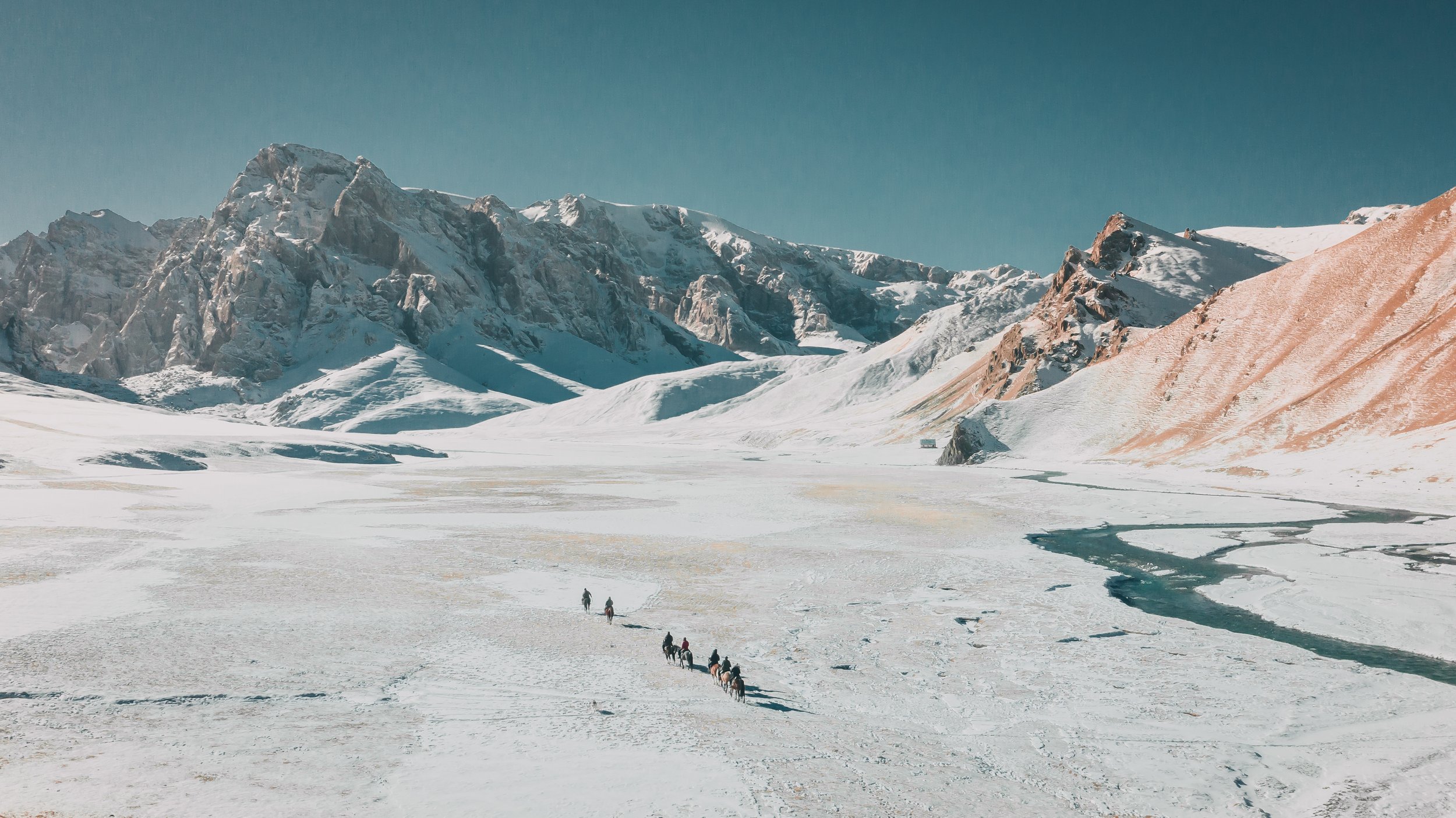
Kyrgyzstan
The Land of THE CELESTIAL MOUNTAINS
Embark on a thrilling odyssey to Kyrgyzstan, a hidden gem nestled amidst majestic mountains, pristine alpine lakes, and a rich tapestry of nomadic heritage, where adventure and personal transformation await!
From epic mountain peaks to serene alpine lakes, this captivating land offers a playground for thrill-seekers and nature enthusiasts alike.
Discover the untamed landscapes of Kyrgyzstan as you traverse off-the-beaten-path trails, encountering breathtaking vistas and untouched wilderness. Immerse yourself in the warm hospitality of nomadic communities, sharing their traditions and embracing a way of life that has stood the test of time.
Let the majestic mountains and untouched nature of Kyrgyzstan inspire awe and ignite your sense of personal transformation; we’ll see you there!
Spring, summer, autumn expedition
-
THE LAND OF ADVENTURE
Day 1: Bishkek - Chong Kemin Valley
Day 2: Chong Kemin Valley - Son Kul Lake
Day 3: Son Kul Lake - Kel Suu Lake
Day 4: Kel Suu Lake
Day 5: Kel Suu Lake - Eki Naryn
Day 6: Eki Naryn - Issyk Kul
Day 7: Issyk Kul - Enilchek (Abandoned Ghost Town)
Day 8: Enilchek - Cholpon Ata
Day 9: Cholpon Ata - Bishkek
Day 10: Depart Bishkek
WINTER EXPEDITION
-
THE LAND OF THE CELESTIAL MOUNTAINS
Day 1: Welcome to the City of Bishkek
Day 2: Kyzart Village - Son Kul Lake
Day 3: Son Kul Lake
Day 4: Kel Suu Lake
Day 5: Kel Suu Lake Horse Riding
Day 6: Bokonbaevo Village
Day 7: Hunting with the Eagle Hunter
Day 8: Skiing Day or Snowboarding Day
Day 9: Bishkek
Day 10: Depart Bishkek
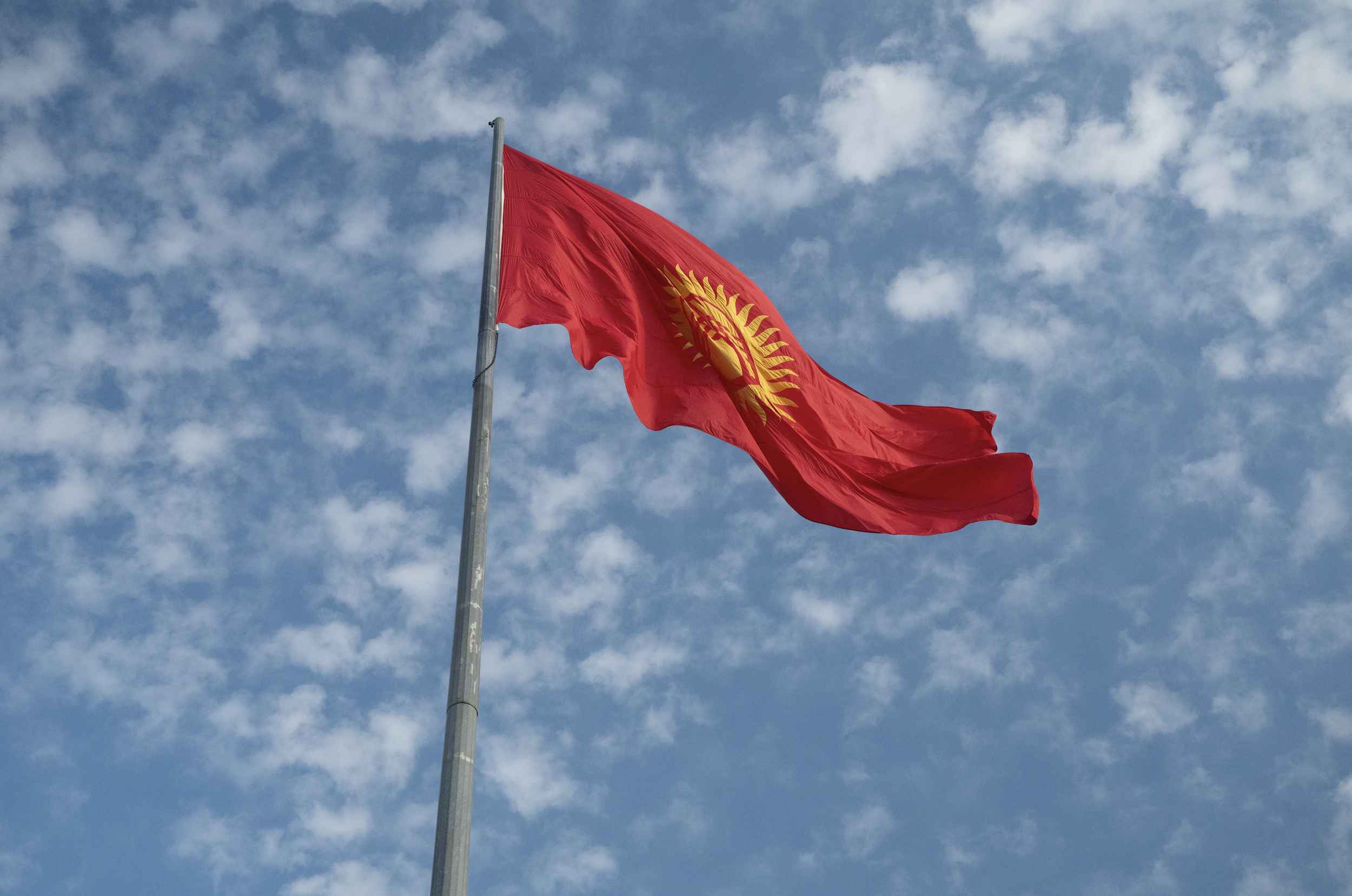
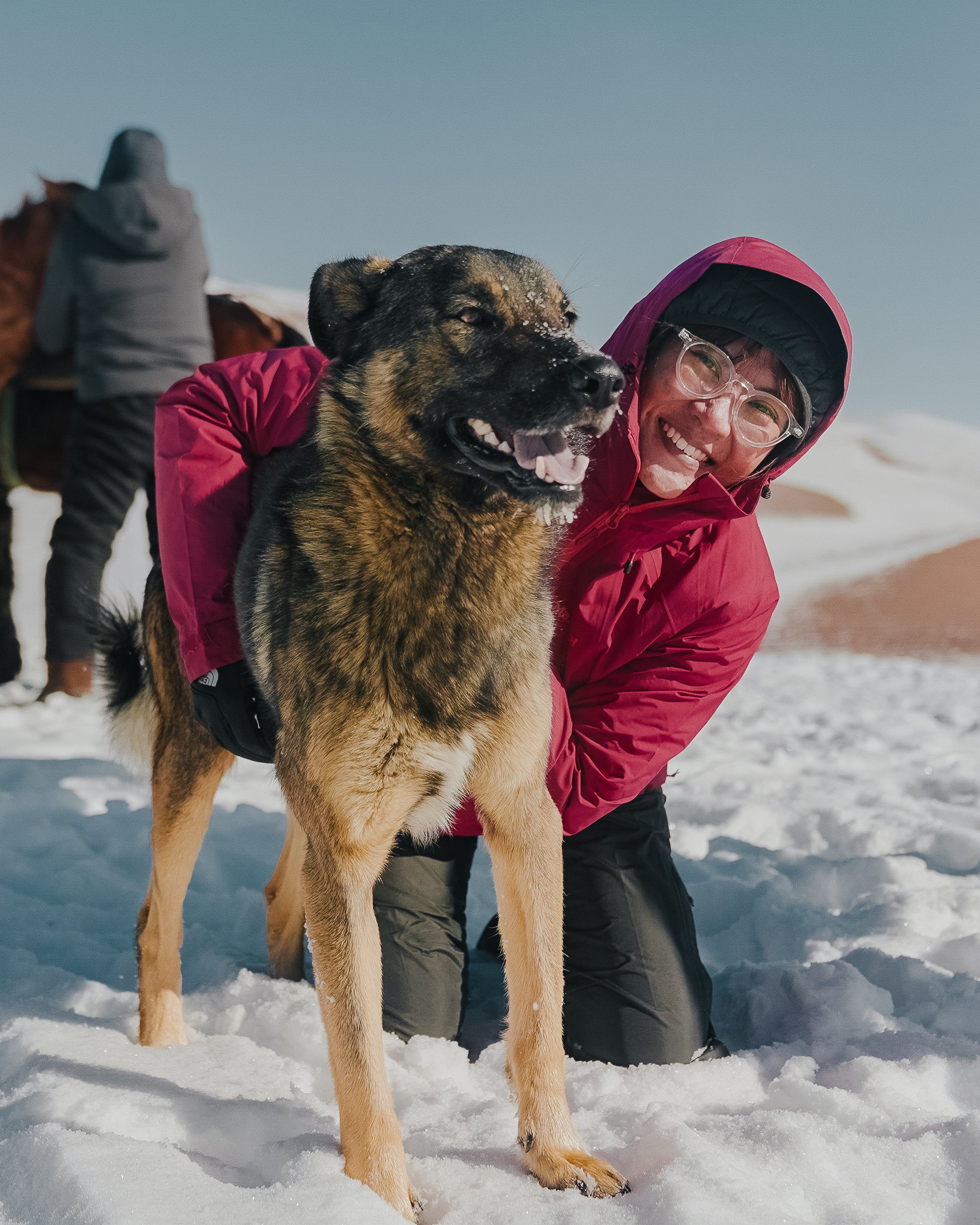
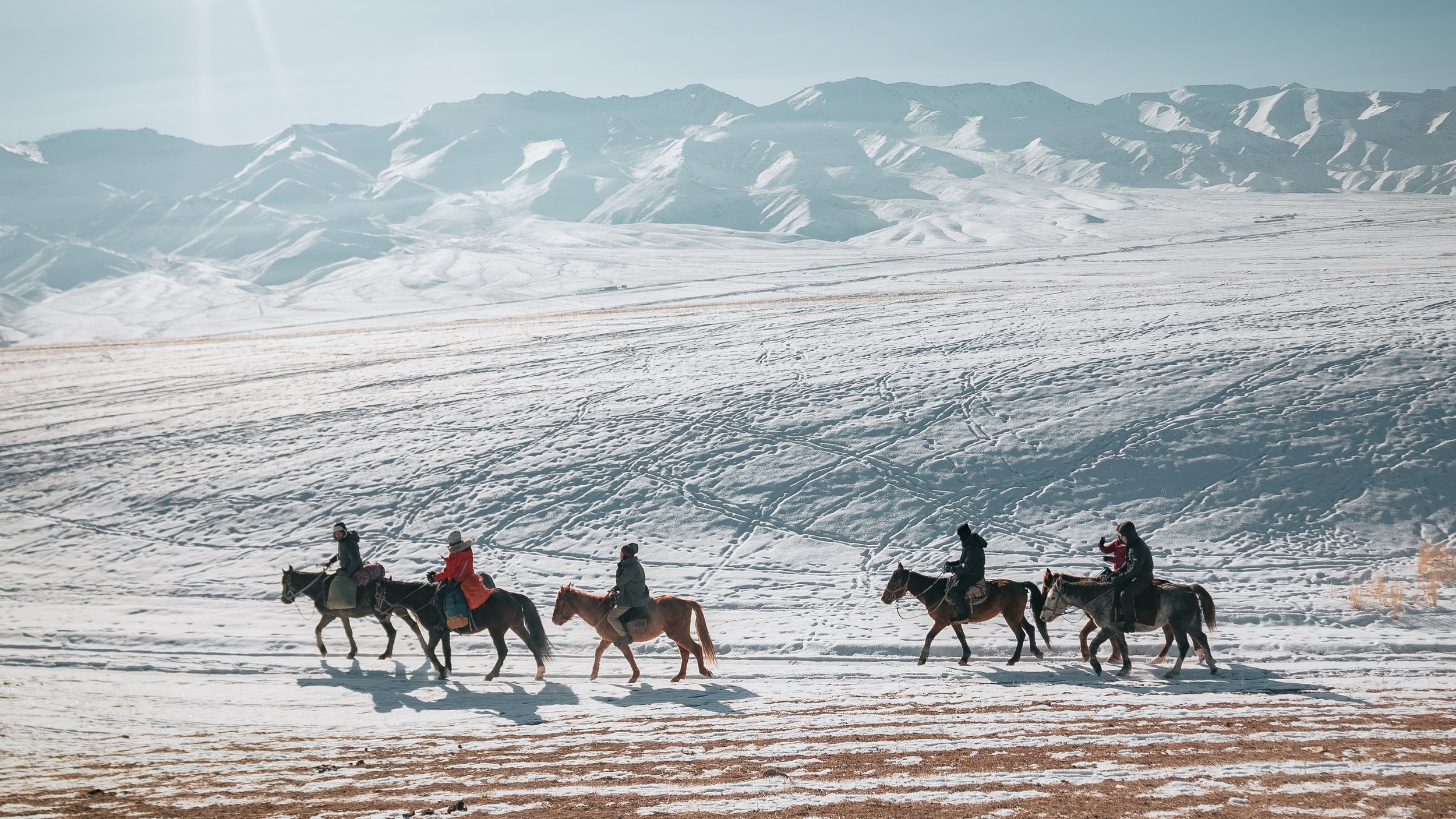


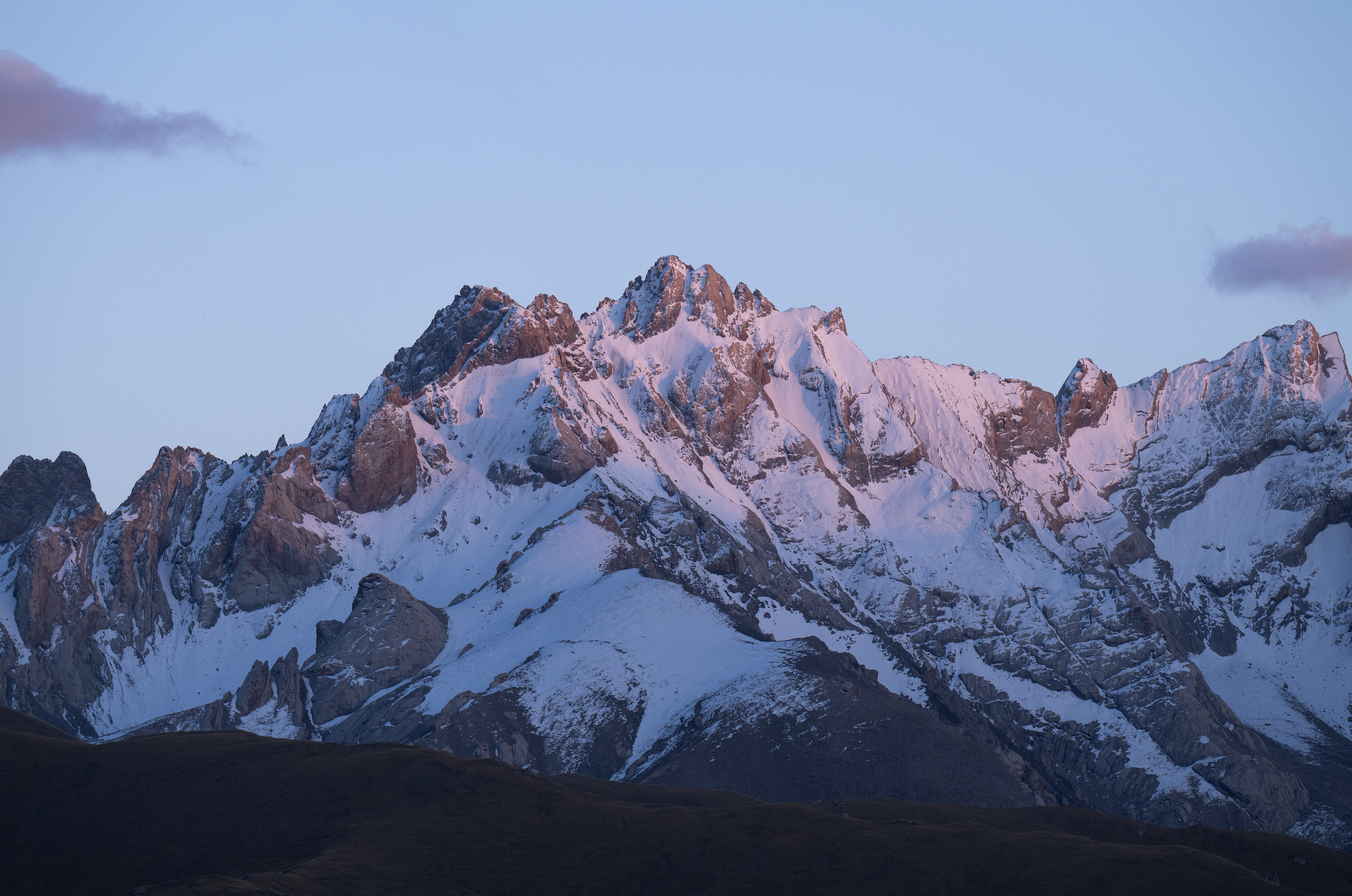
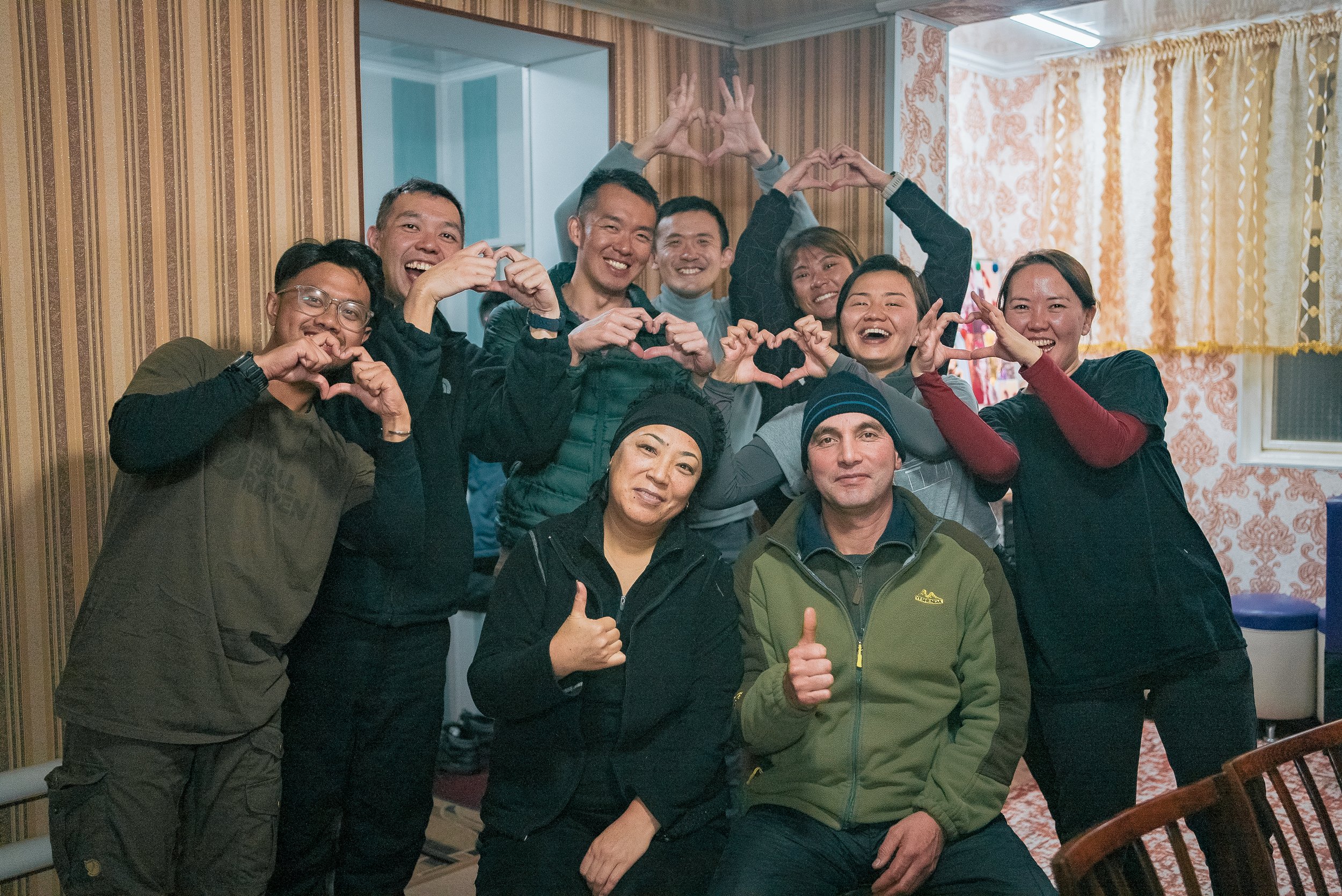
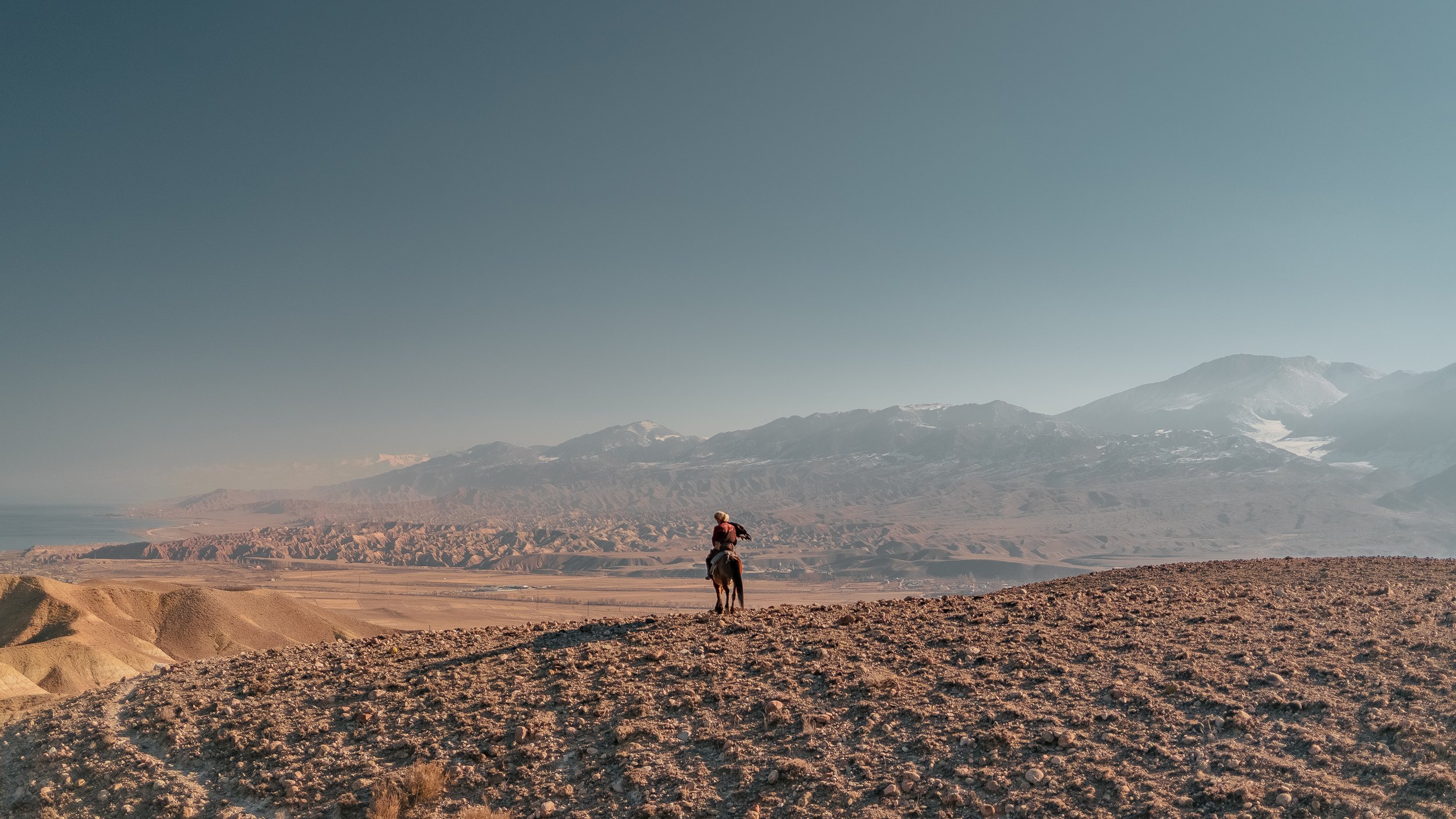

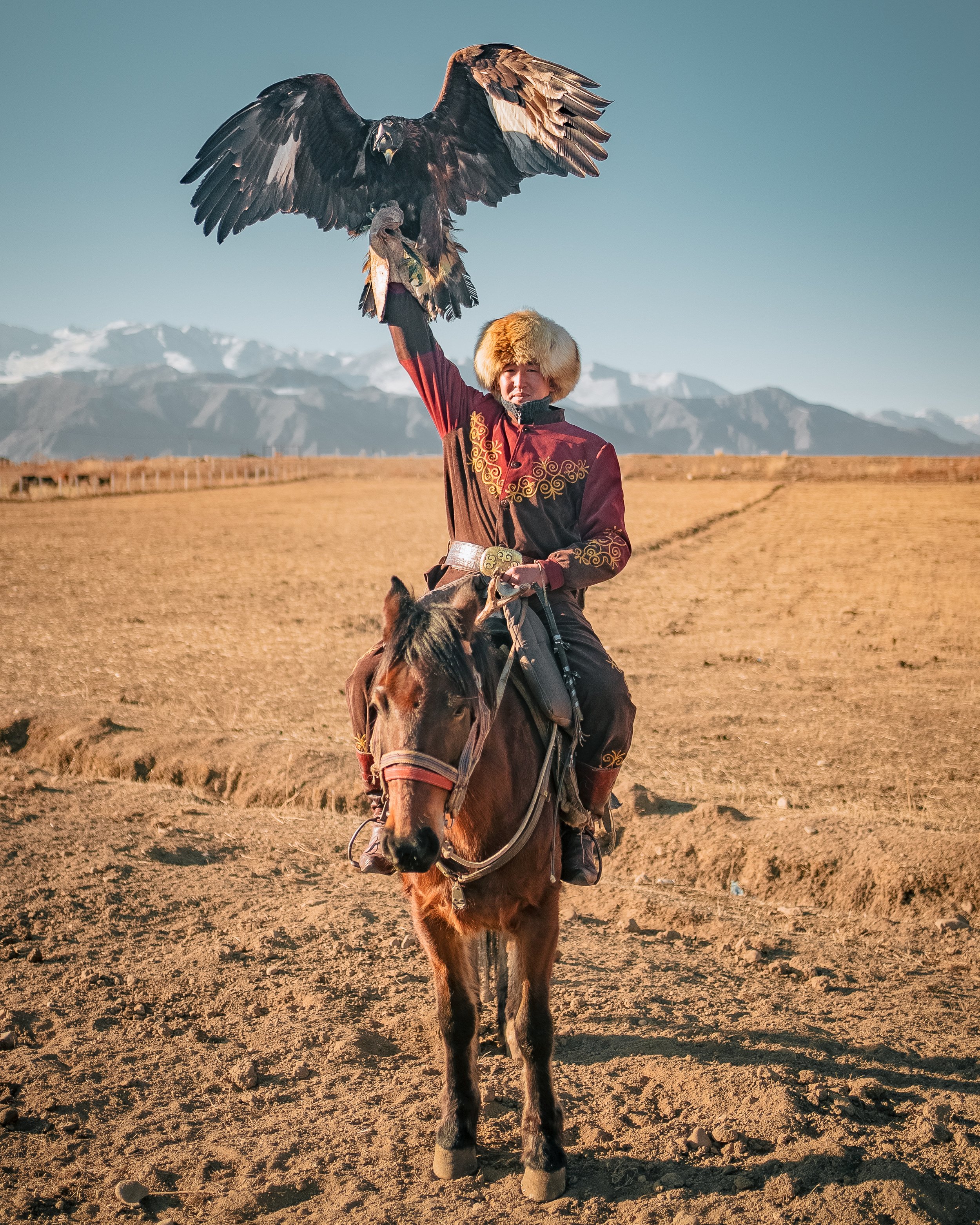
Kyrgyzstan Trip FAQ
-
Kyrgyzstan is generally considered a safe destination for travelers. The country has a relatively low crime rate, and violent crime is uncommon. However, like traveling anywhere, it's essential to be aware of your surroundings, take standard safety precautions, and stay informed about local conditions.
Petty theft incidents may sporadically transpire in urban areas, vigilance about your surroundings is always advisable. Additionally, Kyrgyzstan has experienced political changes in recent years. While the situation is generally stable, it's wise to stay informed about current events and be aware of any potential developments.
-
If you are a Singapore Citizen, you will be allowed to stay in Kyrgyzstan for a maximum of 60 days without Visa. Hence, if you are planning to stay for more than 60 days, you may wish to apply for a Visa. There are 3 ways you can do so:
1. On arrival, At Manas Airport
2. Online, via the government official website
3. At any embassy or consulates of Kyrgyzstan abroad
Kindly note that should you be applying for a Kyrgyzstan Visa, the cost starts from USD40 and will require approximately 7 working days for your Visa to be processed. As such, to prevent any delays, it would be ideal to apply for your Visa earlier.
-
"Travel insurance is your safety net for unexpected stuff like flight hiccups and surprise medical moments. It’s the unsung hero of hassle-free travel. Trust us, a bit of preparation goes a long way. So, buckle up, worry less, and let the adventures roll with the peace of mind that comes with travel insurance!
Unsure of which to go for? Go ahead and explore and compare potential travel insurance providers!
Here is a good one.
This platform offers a comprehensive search feature that allows you to compare various insurance policies specifically tailored for adventure tours. This platform is a good kickoff for information, but just so you know, we’re not the gurus in this area. For the real scoop on coverage, exclusions, and anything special for extreme sports, reach out to the insurance companies directly. They’ve got all the details!
If you're looking for premium coverage, do consider International SOS. International SOS specializes in health and security services, offering medical assistance, travel risk management, and emergency evacuation services.
-
In the context of our Kyrgyzstan expedition, the experience offers a unique blend of enjoyment and physical activity compared to our other expeditions. Here are some important considerations:
Expect to engage in horseback riding for extended durations, typically spanning five to seven hours on multiple days.
Please be mindful that accessing rural locations in the countryside involves off-road travel, and the roads are often unpaved, leading to potentially bumpy rides.
-
Throughout your Kyrgyzstan expedition, your stay in the capital city of Bishkek will be in a hotel. For your utmost comfort, twin-sharing rooms will be provided, with roommates of the same gender. Should you be a couple or have made prior arrangements, you will be accommodated accordingly.
As we venture beyond Bishkek, please be aware that accommodations may involve shared arrangements among participants of both genders. These typically encompass stays in guesthouses, yurts, and homestays, with restroom and showering facilities being more limited in availability.
-
In Kyrgyzstan, the official currency is the Kyrgyzstani Som (KGS). Accessing cash is possible through ATMs and banks in Bishkek, the capital city. It is essential to ensure that your card, particularly one with Maestro capability, is suitable for successful withdrawals. Upon your arrival at Manas International Airport, you can exchange local currency at one of the airport offices after collecting your luggage. Please be prepared with sufficient USD or euros for conversion to the local KGS; note that currencies other than USD or euros, such as SGD, may not be accepted.
Moreover, credit cards, especially Visa and Mastercard, are widely accepted, even in rural towns and villages. It is crucial to activate your overseas pin code for card transactions. Notably, select locations in Bishkek also accept U.S. dollars.
We recommend that each individual carries a cash reserve of approximately $100 to $300 or more in U.S. dollars or euros, depending on your intended purchases and considering potential tipping scenarios.
For your reference, the exchange rate is approximately 81 Kyrgyzstani Som (KGS) for 1 USD. The highest denomination of the Kyrgyzstani Som is the 5,000 KGS note.
-
Some of the major operators in Kyrgyzstan include MegaCom, Beeline, and O! (formerly Nur Telecom). You can visit a retail store or kiosk of your chosen mobile operator. These stores are usually found in cities and towns across Kyrgyzstan. You will need to provide a valid form of identification, such as your passport, to purchase a SIM card. Mobile operators in Kyrgyzstan are required by law to register the personal information of their customers. The store will offer you various prepaid and postpaid plan options. Choose the one that best fits your needs, whether it's for voice, data, or a combination of both.
Remember to keep your identification and the SIM card's registration information safe, as you may need it in the future for any troubleshooting or recharging. Kyrgyzstan has a good mobile network coverage in urban areas, however it may be patchy in remote areas. Prepare yourself for this and inform your closed ones beforehand of your itinerary in case you might not be able to reach them.
-
Temperature ranges in Kyrgyzstan exhibit notable variations between day and night, a characteristic accentuated by the country's unpredictable and fluctuating climate. Kyrgyzstan experiences diverse weather throughout the seasons, and it's crucial to be weather-prepared, considering the following:
Winter (November to February): Snow-covered landscapes and frozen lakes.
Daytime: Cold temperatures prevail, ranging from -5°C to -15°C (23°F to 5°F) in lowlands.
Nighttime: Even colder, with temperatures potentially dropping below -20°C (-4°F), especially in mountainous areas.
Note: Winter weather can fluctuate, occasionally reaching as low as -30 or -40 degrees Celsius, highlighting the necessity of packing essential gear for extreme cold conditions.
Spring (March to May): Blossoming flowers and thawing rivers.
Daytime: Gradual warming, ranging from 10°C to 20°C (50°F to 68°F) in lowlands.
Nighttime: Still cool, with temperatures varying but generally remaining above freezing.
Note: Kyrgyzstan's spring introduces unpredictability, and occasional snowfall or cooler evenings may occur, emphasizing the need for adaptable clothing.
Summer (June to August): Lush greenery and warm valleys.
Daytime: Warm temperatures grace the lowlands, ranging from 20°C to 35°C (68°F to 95°F).
Nighttime: Generally cooler, with temperatures ranging from 10°C to 20°C (50°F to 68°F).
Note: Despite it being summer, the weather's unpredictability persists, with occasional snowstorms or chilly spells. Always be prepared for varying conditions. The greenery is a result of ample rainfall so remember to pack for this too!
Autumn (September to October): Golden landscapes and vibrant fall colors.
Daytime: Cooler temperatures return, ranging from 10°C to 20°C (50°F to 68°F) in lowlands.
Nighttime: Temperatures drop, and cooler evenings are common as autumn progresses.
Note: Autumn brings fluctuations, and temperature changes signal the approach of winter. Prepare for cooler evenings and potential surprises in the weather.
Kyrgyzstan's weather is renowned for its unpredictability, from summer snowstorms to drastic temperature shifts. Whether exploring the scenic landscapes or engaging in outdoor activities, it's crucial to overpack essential gear for both hot and cold weather, ensuring a comfortable and adaptable journey through Kyrgyzstan's diverse and captivating terrain.
-
Wearing the right gear is essential to ensure you’re fully prepared and comfortable throughout your adventure. The unpredictable weather and diverse terrain demand proper attire, so we highly recommend following our curated packing list. After years of extensive reviews and firsthand experience, we’ve meticulously designed this list to be your ultimate guide for your journey to Kyrgyzstan.
Once your adventure is booked, we’ll send over the detailed packing list to help you get ready. If you have any questions, feel free to reach out via email or WhatsApp—we’re here to assist you every step of the way!
-
Certainly, for your upcoming expedition, it is advisable to include supplementary gear and electronic items. These essentials encompass a headlamp, which proves invaluable during your rural sojourn, particularly in accommodations such as ger camps or for nighttime activities. Additionally, consider packing power banks to ensure your electronic devices remain charged throughout your journey. A personal First Aid Kit is also strongly recommended, equipped with fundamental supplies like hand sanitizers, analgesics, anti-diarrheal medication, wound ointment, adhesive bandages, blister care solutions, and motion sickness tablets, should they be required.
For an enhanced level of comfort, contemplate the inclusion of personal comfort items like eye masks, microfiber towels, an inflatable travel pillow, and earplugs. These additions will contribute to a more comfortable and convenient overall experience during your expedition.
Lastly, if you have a penchant for culinary exploration, you may wish to bring along your preferred local snacks, spices, and instant food options to add a flavorful dimension to your mealtime experience.
-
For your convenience, we recommend two specific types of bags on our expedition:
1. Daypack Selection: We suggest opting for a 15-30 litre daypack, complete with a rain cover. This size is both practical for vehicle transport and exploration. Your daypack will be handy for carrying essential items like your passport, wallet, camera, water bottle, spare clothing, snacks, and more. It's advantageous to choose one with a water bladder compartment for easy hydration. Quality daypacks can be found from renowned brands, such as Fjallraven, our preferred outdoor brand.
2. Check-In Bag: For your check-in luggage, we advise either a big backpack or a duffel bag. The weight limit for check-in luggage to Kyrgyzstan is 25 kg, so please keep this in mind. Remember to carry all your electronics with you as part of your hand luggage. Additionally, we recommend having a set of clothing, including warm gear like a beanie and gloves, in your hand luggage as a backup, in case your checked-in bag experiences delays or issues beyond our control.
-
During our Kyrgyzstan expedition, when dining at local restaurants, you'll have the opportunity to indulge in a rich tapestry of dishes that beautifully reflect the cultural values and warm hospitality embraced by the Kyrgyz people.
Traditional Kyrgyz cuisine is notably characterized by the use of ingredients like horse meat, mutton, beef, and an assortment of dairy products.
For those with distinct dietary preferences or restrictions, including vegetarian or vegan options, please be assured that we will be taking measures to accommodate your needs. It is important to note, however, that Kyrgyzstan is renowned for its meat-centric culinary traditions, which may result in fewer options for vegetarians and vegans. To enhance your dining experience according to your personal taste, we recommend considering the inclusion of your preferred spices or condiments in your packing list. Given that Islam is the most commonly practiced religion in Kyrgyzstan, halal options are widely available, alleviating concerns for those adhering to halal dietary practices.
-
While exploring the picturesque landscapes of Kyrgyzstan, we highly recommend that all participants take precautionary measures by boiling tap water before consumption rather than using it directly from the tap.
Fortunately, bottled water is easily available throughout the country. We suggest getting additional bottled water during your visits to supermarkets, as our provision includes only one bottle per day. For more prolonged journeys, such as extended treks and horseback excursions, where it may be difficult to get a consistent supply of bottled water, rest assured that we will supply boiled spring water for your convenience and safety.
-
We strongly recommend consulting a medical professional to assess your specific health needs and adhere to Kyrgyzstan's health guidelines. Your well-being is our priority, and individualized medical advice ensures a safe and healthy journey.
Typical recommendations include Hepatitis A and Tetanus vaccinations, while additional vaccines to consider are Hepatitis B, Rabies, Tick-borne Encephalitis, and Typhoid. Please note that a yellow fever vaccination certificate is required for travellers over 1 year of age arriving from countries with risk of yellow fever transmission and for travellers having transited more than 12 hours through the airport of a country with risk of yellow fever transmission.
-
In general, sanitary facilities in Kyrgyzstan vary. Hotels typically offer Western-style toilets, but many public bathrooms feature squat toilets. Be cautious when using gas station toilets and consider finding alternatives, even if it means using a natural spot outdoors. If you're staying in rural homestays, you may encounter trough toilets, which consist of planks over a pit. Some might have a door, while others may provide a view of the surrounding landscape. As a courtesy, we recommend hanging a hat or scarf on a post outside to signal when it's in use. It's advisable to carry your own toilet paper and hand sanitizer for convenience.
-
Airlines: We typically collaborate with international airlines such as Emirates + Fly Dubai, Turkish Airlines for our Kyrgyzstan expeditions. Please note that the airline selection may vary based on your travel dates.
Transit Information: Since there are no direct flights to the destination from Singapore, a single transit is required to reach the final destination. Since we primarily collaborate with international airlines, your luggage is typically transported directly from your departure point to your final destination. However, it's essential to be aware that the specific flight schedule and airport regulations can vary. Unlike certain airports, such as Delhi, India, where rechecking may be necessary for security reasons, most of the time, you won't need to worry about rechecking your baggage during transit.
Handling Your Own Flight Bookings: If you prefer, participants are welcome to manage their own flight bookings. We allocate a flight budget per participant, which will be deducted from the total tour cost. This option allows you to choose your preferred transit country and even arrange layovers according to your preferences. Simply secure your flight schedule and provide us with the details, and we will coordinate planning, including airport transfers, for a seamless experience.
-
Please remember to specify your final destination, rather than your transit stop, when informing the check-in counter staff. Utilize the manual check-in counter during airport check-in, not the automated machine, to guarantee the direct transport of your checked luggage to Bishkek, Kyrgyzstan.
For your return journey from Kyrgyzstan, kindly inform airline staff of your final destination, to facilitate a smooth flight process. Ensure you carry your electronics with you and avoid checking them in before your flights.
We aim to streamline your travel experience as much as possible. On our group expeditions, you have the flexibility to either meet at Manas International Airport upon arrival or coordinate offline with fellow travelers to check in together. Choose the option that best suits your preferences.
Lastly, upon your arrival at Manas International Airport, after retrieving your baggage, our dedicated Kyrgyz guide(s) is there to warmly welcome you at the immigration exit, identifiable by the Beyond Expeditions logo in a photo they will be holding. Also, they are already included in the WhatsApp group chat with you, so in the event you inadvertently miss them as you exit immigration, simply send a message in the group to alert them of your presence.
-
Our adventure begins at Manas International Airport (FRU), situated about 25 kilometers (16 miles) northwest of the vibrant city of Bishkek, Kyrgyzstan.
In Bishkek, expect to encounter a blend of Soviet and modern influences, with tree-lined boulevards, bustling markets, historical sites, exciting cultural venues and a lively atmosphere.
-
Absolutely! We love having a global squad on board. Whether you're from the heart of New York City or the serene landscapes of New Zealand, our expeditions are open to adventurers of every nationality. Just give us a heads-up on where you'll be flying in from, and we'll make sure you're all set for the journey.
We take pride in assembling a vibrant crew with diverse nationalities, backgrounds, and stories to share. Join the fun!
-
Our horse riding guide has been thoughtfully prepared to provide you with the essential knowledge for a safe and enjoyable experience. Please take the time to thoroughly review it through here: Horse-riding Safety Guide — your ultimate handbook!
It's important to note that the majority of our participants have little to no prior experience in horse or camel riding, which is perfectly acceptable. This expedition doesn't require prior expertise. However, our goal is to enhance your safety and ensure you feel well-prepared for this remarkable journey.
To further boost your horse riding skills and increase your confidence leading up to the trip, we have curated a selection of valuable video resources. We strongly recommend watching these videos multiple times before and during your expedition. They offer invaluable insights and tips to enhance your readiness and help you make the most of your adventure.
You can access the videos here:
1) Enhancing Horse Riding Skills
2) Essential Techniques for Horseback Riding
3) Mastering the Art of Horse Riding
Additionally, our Kyrgyz guide on each expedition will personally conduct a brief safety briefing and provide horse riding instructions before we begin the activity. Please be aware that due to Kyrgyzstan's rural nature and recent emergence in tourism, the explanations may not be as comprehensive as in more established locations like New Zealand or Iceland.
This is why we make every effort to thoroughly prepare all participants before the trip, ensuring they are well-equipped for this adventure. If you have any questions or need further clarification, please don't hesitate to contact us. Your enjoyment in Kyrgyzstan is our top priority, and proper preparation is essential for maximizing the experience.
-
Drone use is permitted in Kyrgyzstan; however, specific drone regulations are currently not clearly defined. If you plan to operate a drone in Kyrgyzstan, it's advisable to contact the Civil Aviation Authority in Kyrgyzstan directly for any inquiries or updates on drone operations within the country.
When using your drone, it is crucial to adhere to general safety guidelines:
Avoid flying your drone over people or in areas with large crowds.
Respect the privacy of others when flying your drone and avoid intruding on their personal space.
Keep your drone's altitude below 122 meters (400 feet).
Maintain direct visual contact with your drone while it is in operation.
Maintain a minimum distance of 8 kilometers (5 miles) from airports and 3 kilometers (1.86 miles) from heliports to ensure safety.
Fly your drone only during daylight hours and in favorable weather conditions.
Do not operate your drone in sensitive areas, including government or military facilities, as the use of drones or camera drones is prohibited in these locations.
Always prioritize safety, respect local regulations, and exercise responsible drone operation when using your drone in Kyrgyzstan. Lastly, while we encourage you to capture the perfect shots with your drone, please be considerate of your travel companions and the planned itinerary to prevent any inconveniences.
-
For local emergency contacts in Kyrgyzstan, please keep these important numbers in mind:
101 for the Fire Department
102 for the Police
103 for the Public Ambulance Service
151 for a Private Ambulance Service (which may be a paid service).
We also highly advise you to register with the Ministry of Foreign Affairs (SG) to ensure that you can be promptly notified and located in the event of a serious emergency. You can reach the Ministry of Foreign Affairs at (65) 6379 8000 or via email at mfa@mfa.gov.sg for further assistance and support.
-
Should an emergency arise, kindly inform our local expedition guide promptly. Subsequently, you can contact Scott, from our BE team, directly at +65 91150782. Scott will respond to your inquiry as soon as possible.
kyrgyzstan customs
and cultural etiquette
As avid travelers, we humbly recognize ourselves as guests in every country we step into, and we deeply value treating each place with utmost respect and honoring its unique way of life.
To ensure a meaningful and harmonious experience while traveling in Kyrgyzstan, here are some invaluable customs and etiquette tips to keep in mind;
-
A commonly employed informal salutation while traveling within Kyrgyzstan is "Salam." This is a customary and broad greeting, expressing goodwill and wishing peace upon the recipient.
-
In Kyrgyzstan, the primary languages are Kyrgyz and Russian, and you'll find various other languages spoken by ethnic minorities; however, there's no need to worry because our friendly guides are fluent in English and can serve as translators when required.
-
Kyrgyz people are known for their hospitality. It is common for hosts to offer food, tea, or snacks to guests. Be polite and accept these offers graciously, even if you're not particularly hungry or thirsty. If you do not eat it for any reason, just accept it first and let your guide know discreetly afterwards.
-
In Kyrgyz culture, the head is regarded as the most sacred part of the body. Therefore, it is essential to exercise restraint from touching a Kyrgyz's head. Additionally, Kyrgyz people attach great personal significance to their hats, making it advisable to refrain from touching or handling another person's hat.
When extending your hand to hold cups or accept items, it is customary to have your palm facing upward.
In the spirit of respect and etiquette, presenting gifts or offerings should be done with both hands.
In Kyrgyzstan, revealing the soles of your feet is viewed as impolite behavior. To avoid any misunderstanding and ensure you are perceived as respectful, refrain from pointing your feet towards sacred objects such as altars.
-
Respecting the environment when enjoying the stunning natural landscapes of Kyrgyzstan is essential to preserving its beauty and protecting its unique ecosystems. We do this by following the local guidelines, staying on designated trails, leaving no trace by packing out all trash and litter, conserving water, and reducing noise pollution. To go even further, you may consider contributing to local conservation efforts.
-
In Kyrgyzstan, the two central poles within a yurt carry profound symbolic significance. Analogous to the vital support provided by a husband and wife to their family, these two poles represent the unwavering support system within the yurt's structure. It is essential to respect this symbolism by refraining from walking between or leaning against these central poles.
Furthermore, as we delve into the realm of cultural norms, it is important to exercise discretion when it comes to public displays of affection. In Kyrgyzstan, outward expressions of physical love, such as kissing in public, are considered disrespectful and should be reserved for private moments.
-
In Kyrgyzstan, it is customary not to engage in whistling while inside a yurt, as this action is believed to invoke spiritual entities.
-
In Kyrgyzstan, fire is held in reverence as a sacred element. It is customary not to extinguish it artificially, allowing it to naturally burn out. Additionally, it is essential to refrain from disposing of any waste or debris into the fire.
-
When visiting a yurt in Kyrgyzstan, it's important to observe the following yurt etiquette:
In Kyrgyzstan, when entering the yurt of a local host family, it is customary to enter from the left and traverse the yurt in a clockwise direction.
Before entering a yurt, it is customary to remove your shoes as a sign of respect and help keep the interior clean.
When entering a yurt with multiple people, it is customary to greet the eldest or highest-ranking person first before interacting with others.
Always enter the yurt with your right foot first as a sign of respect.
Avoid stepping on the threshold of the yurt, as it is considered a sacred space.
Greet the host with a friendly smile and handshake, using both hands, if possible.
When inside, sit cross-legged or on the cushions provided, and avoid pointing your feet toward people or the central area or sitting with your back or feet facing the altaras it's considered impolite.
Observing these yurt etiquettes helps demonstrate respect for Kyrgyz nomadic traditions and ensures a positive interaction with your hosts.
-
In Kyrgyzstan, dining etiquette is rooted in tradition and respect. When partaking in a meal, it is considered courteous to sample the dishes presented, even if they may not align with your personal taste.
Moreover, during the course of a meal, an empty plate is a subtle indicator that you would appreciate a second serving. To signify fullness, leaving a small portion in your bowl communicates your satiety to others.
For those who wish to partake in a Kyrgyz tradition when accepting an alcoholic beverage, such as vodka, there is a time-honored procedure comprising three straightforward steps:
1. Begin by dipping the ring finger of your right hand into the glass or bowl, gently flicking a drop upwards. This gesture is an homage to Tengri, the God of the Sky.
2. Proceed by releasing another drop into the air or towards the wind, followed by the third drop directed towards the ground. These actions are a tribute to Gadzner, the God of the Earth.
3. If you choose not to consume the beverage, it is still considered respectful to adhere to the aforementioned steps. To decline, place your finger briefly to your forehead before returning the cup to the table.
-
Kyrgyzstan is a predominantly Muslim country, and it's important to dress modestly, especially in rural areas and when visiting religious sites. Women, in particular, should cover their shoulders and knees.
-
In Kyrgyzstan, presenting gifts to hosts is a customary practice that reflects respect and gratitude. Guests often bring modest gifts like sweets or fruits to show appreciation, and the act is marked by the use of both hands and polite expressions of thanks. This tradition fosters strong social bonds and extends to special occasions, emphasising the significance of mutual appreciation and hospitality in Kyrgyz culture.
-
In Kyrgyzstan, it is imperative to unfailingly seek permission prior to capturing any photographs within the confines of a family yurt. Additionally, some people may believe that photographs can capture their soul, and they may be uncomfortable with it.
-
When it comes to tipping our wonderful Kyrgyz team, the choice is entirely yours, and we want you to feel comfortable with your decision. If you wish to tip generously on your own accord, please go ahead – your kindness is greatly appreciated, and it's a wonderful way to show your appreciation for their hard work. Your group's decision doesn't have to limit you from tipping privately if you'd like to do so.
It's widely accepted to tip local guides and drivers, and a suitable amount typically ranges from $10 to $20 per person per day. We recommend considering tipping drivers as much as guides since, given the vast distances and challenging terrain in Kyrgyzstan, they often work as hard, if not harder than the guides to ensure you have a safe and enjoyable journey.
On the other hand, if you decide not to tip, that's absolutely okay too. We want to emphasize that there's no pressure to tip just because others in your group are doing so. Your choice is respected, and you have the freedom to decide what feels right for you.
We want this experience to be enjoyable and stress-free, so you can make your tipping decision based on your own preferences and feelings. Your thoughtfulness and consideration are what truly matter.
When travelling to a different country, it's important to have local currency on hand, so be sure to exchange your currency for Euros or USD before your trip. This will make it easier for you to exchange your currency to their local currency (KGS) when you arrive at your destination.
